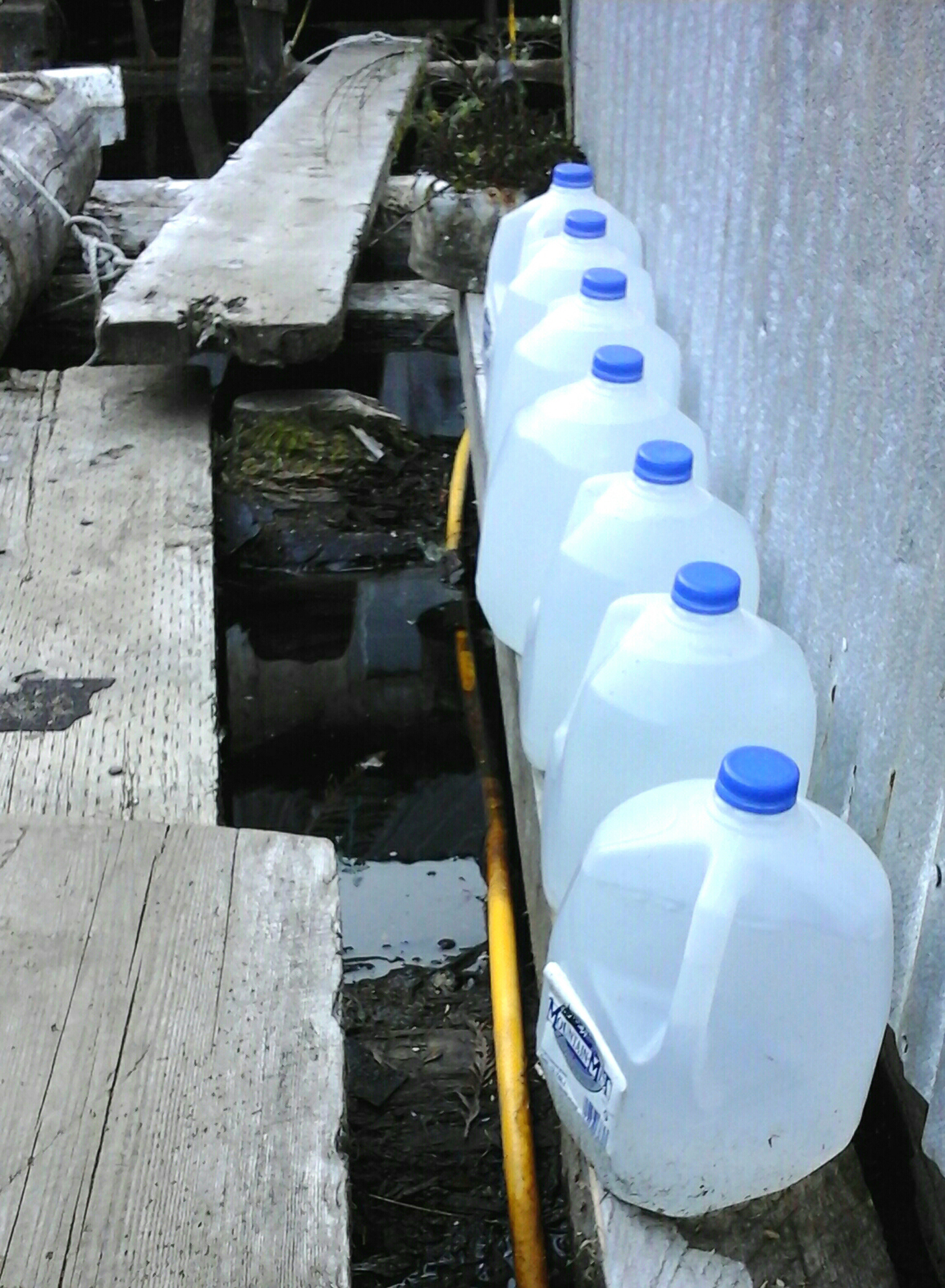I remember watching an episode of “Mad About You” where Paul Reiser’s character is directing a series of filmed interviews about who invented commonly used things that are taken for granted. Like “moist towelettes” or wipes. The joke was supposed to be that these stories were so incredibly boring that he had to give up.
I guess Paul never experienced a cold snap in the Alaskan bush when there’s no running water—wipes come into their own and reign supreme at such times. I’d love to shake the hand of whoever invented them. Clean-up was a never-ending frustration before the Genius of All Time (move over Einstein) thought to impregnate disposable cloths with cleaning fluids and package them in an easily usable container.
Naturally, “disposable” is the watchword when water is limited. Paper products are the order of the day: paper bowls, paper cups, paper plates (which can also be used as disposable cutting boards), and paper towels. The great thing about paper products is that they can be recycled as fire-starter.
My Maine Coon Katya is finicky about her bedding, requiring that it be changed every three days, if not sooner, or I’ll hear about it. Keep in mind that she has learned how to pitch certain imperative meows over the noise of a running chainsaw. And she doesn’t know the meaning of the word “quit.” Or, for that matter: “Will you please stop it before I lose my mind?!”
There is no way, without running water, that I can keep up with her laundry needs plus mine, so I got online and ordered rolls of paper used for examination beds from a medical supply company. Happily, paper is a good insulator and Katya loves it. I change it out whenever she requires and use what she’s done with for fire-starter. Our winter relationship has improved a lot since I came up with this fix.
And, speaking of laundry, while hand washing clothes with limited water is no treat, it is nice to see how fast they freeze dry in an icy northerly wind. As a child I remember my mom bringing in my dad’s jeans frozen so stiff they could stand up on their own.
It’s essential to keep track of the tides and fill five gallon buckets with saltwater when the houses are floating. Otherwise toilets aren’t able to be flushed. And every house in the bush is well-stocked with cases (yes, that’s plural) of toilet paper in case we’re stormed in and no supplies can get to us.
Pots of water are always kept on the stove to fill hot water bottles for those unfriendly cold nights (Katya has her own), or to fill a thermos to take to the skiff to pour on a frozen throttle and thaw it before we can start the outboard and go get our mail and groceries.
Whenever it rains and my barrel is filled, I try to be quick about filling gallon jugs—otherwise a quick freeze will require hauling the barrel inside to thaw it to get at the precious water. When it snows I’m out there scooping it up and melting it in a pot on the stove—it beats hauling containers through the woods and across the beach to fill them at the dam, and then carrying them back full and heavy. Many times I’ve slopped some water on my legs and have had it freeze on me before I got back home.
In the future, I hope that if anyone ever decides to do a real documentary on common, supposedly boring household items like the lowly “wipes,” they interview someone who has lived in the Alaskan bush and knows their true value. They could title it “Mad About Wipes.”

